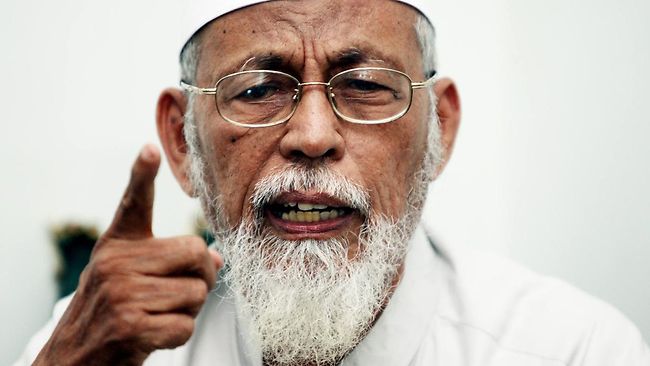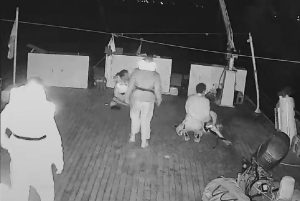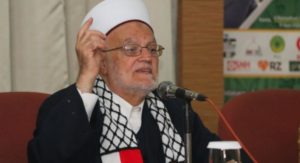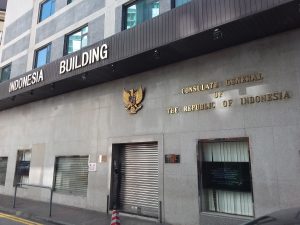
Abu Bakar Bashir
Jakarta, MINA – The Indonesian government is considering house arrest or other forms of clemency for the ailing radical cleric who was the ideological leader of the Bali bombers and is now in prison for helping to fund a jihadist training camp, The Guardian reported.
Wiranto, the government’s top security minister, said on Friday that a meeting of security ministers and police will make a recommendation on Abu Bakar Bashir’s treatment to President Joko “Jokowi” Widodo.
“Clemency, pardon, house arrest or just hospital treatment. It will be discussed in the near future and will be reported to the president,” said Wiranto, who uses a single name.
Bashir, who turns 80 in August, was treated in a Jakarta hospital on Thursday for pooling of blood in the legs, a common condition in the elderly known as chronic venous insufficiency, and later returned to prison.
Defence minister Ryamizard Ryacudu said on Thursday that the government plans to place Bashir under house arrest so he can be cared for by his family or transfer him to a prison near his hometown, Solo in Central Java, according to local media.
His numerous sympathizers hope Jokowi will grant him a permanent release due to his poor health, a move that would help mend fences between hard-line Muslims and Jokowi ahead of a presidential election in 2019 but alarm allies such as the United States and Australia. Jokowi’s approval ratings remain high with the broader Indonesian public.
Australian Foreign Minister Julie Bishop’s office on Saturday described Bashir as the mastermind behind the 2002 Bali bombings that killed 202 people, mostly foreigners including 88 Australians.
Bishop’s office said in a statement that Australians expected justice to continue to be served to “the full extent that Indonesian law allows.”
Also Read: Maximizing MICE Industry Potential: Ministry of Tourism to Host SEABEF and WITF 2025
“Abu Bakar Bashir should never be allowed to incite others to carry other future attacks against innocent civilians,” the statement added.
Bashir was sentenced to 15 years in prison in 2011 for supporting a military-style training camp for Islamic militants.
The firebrand cleric was arrested almost immediately after the Bali bombing. But prosecutors were unable to prove a string of terrorism-related allegations. He was instead sentenced to 18 months in prison for immigration violations.
Jokowi’s spokesman, Johan Budi, said the president will review the case, and house arrest is “possible under the law.”
Also Read: BPJPH Offers Free Halal Certification for Small Eateries Ahead of 2026 Mandatory Halal Deadline
He said a suggestion to pardon Bashir came from Indonesian Ulema Council (MUI)chairman Ma’ruf Amin and would require Bashir to apply for clemency.
That appears unlikely as it would involve Bashir recognising secular authority. After being sentenced in 2011, he said he rejected the conviction because it was based on “infidel” law. (T/RS5/RS1)
Mi’raj Islamic News Agency (MINA)


















![MUI Chairman for Foreign Relations and International Cooperation, Sudarnoto Abdul Hakim (center) at the One Million Women for Gaza Press Conference entitled "Women Boycott Pro-Israel Products" held at the Swiss-Belinn Cawang Hotel, East Jakarta, Thursday (3/7/2025). [Photo: Arina/MINA]](https://en.minanews.net/wp-content/uploads/2025/07/20250703_144042-scaled-1-300x225.jpg)















 Mina Indonesia
Mina Indonesia Mina Arabic
Mina Arabic